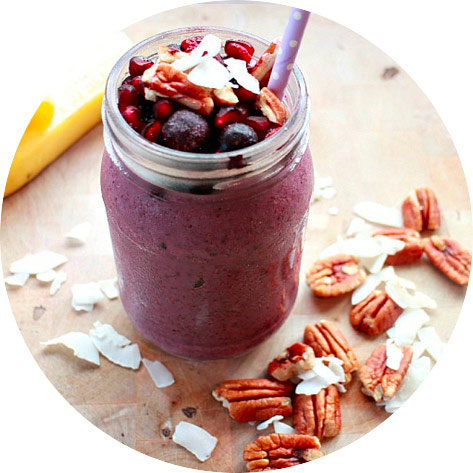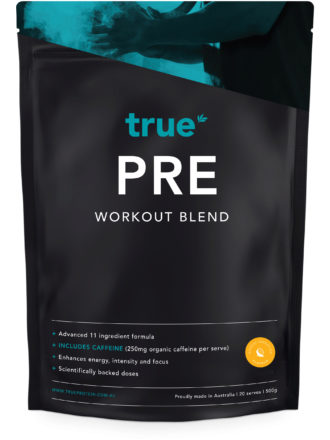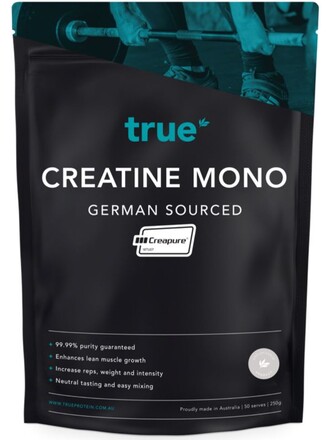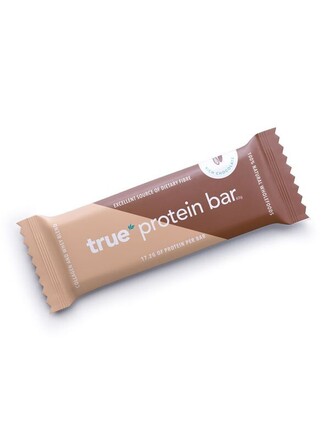
We are shaking up something very exciting.
Please hang on we will be back soon.
We've made some changes to our site. If you're seeing this page please refresh your cache, we apologise for the inconvenience.
Still having problems? Email us at contact@trueprotein.com.au
WPC80
- High 80% protein content
- Fast releasing, easily absorbed
- Ideal 'all round' protein
- Rich in amino acids
- Pre, intra and post workout
No 1 Whey Protein Concentrate
WPC80 is a New Zealand sourced whey protein concentrate powder, which in natural form possesses a protein content of 80% (24g/30g serve). WPC80 is fast digesting and boasts an exceptional amino acid profile, making it an excellent choice for achieving a wide range of goals whether they be post workout recovery, supporting lean muscle growth or assisting weight loss.
Leading Manufacturing Processes
Our whey protein concentrate is manufactured through an ultra-filtration process (UF) to provide an extremely pure and refined protein.
Contains Vitamins and Minerals
This form of protein retains vital minerals such as potassium, calcium and iron as well as small amounts of Vitamin A.
High in Protein
Whey protein concentrate has one of the highest protein contents of any known substance to man. In natural form it boasts 90%+ protein content making it ideal for supporting lean muscle growth.
Fast Digesting
The bioavailability of whey protein concentrate means it is quickly digested by the body to provide essential amino acids for fuel or recovery.
New Zealand Sourced
Not all protein powders are made equally, NZ proteins are considered the best in the world due to industry leading livestock processes and strict government regulations.
Rich Amino Acid Profile
Whey protein concentrate contains a complete amino acid profile for rebuilding muscle and providing vital nutrition for the body.
Achieve Your Goal

Muscle Gain & Performance
Ensuring your body receives a regular supply of protein is essential for supporting lean muscle growth. Protein consists of amino acids which are the building blocks of muscle and allow us to build, repair and maintain muscle tissue.
Building muscle mass essentially involves the process of lifting heavier weights, tearing the muscle fibres and then rebuilding them stronger and bigger and this is where regular protein intake comes in. Current research indicates roughly 2.2g of protein per kg of body weight is required for building muscle. For an 80kg male this equates to 176g/day which equates to roughly 30g-40g per meal spread over 5 meals.
Protein can be attained from a wide range of wholefood sources such as fish, chicken, and beef as well as non-animal sources such as quinoa, green peas and nuts. Protein can also be attained in supplement form, most commonly in powders such as whey protein powder, pea protein powder or rice protein powder. These powders allow for a convenient way to add additional protein calories into your daily diet and assist with muscle building needs.
- Faster Recovery
- Energy Boost
- Muscle Growth

Weight Loss & Toning
The lowest calorie way to consume protein is in a protein shake. Products such as Whey Protein Isolate have extremely low levels of carbs and fats, meaning the calories you consume are virtually pure protein. If you’re looking to minimise your caloric intake and burn any excess fat, a high protein diet is a must. Not only will a high protein diet ensure your body draws its energy from excess fat stores, it’ll also make sure you don’t feel hungry and crave unplanned cheat meals.
Nevertheless, we wouldn’t advise you rely on protein powder as your only source of protein. Rather it should be used to supplement a well-rounded diet.
- Fat Burner
- Low Carb Shake
- Meal Replacement
FAQs
Protein powder is essentially a concentrated source of protein derived from either an animal or plant source. Our whey protein is a high-quality, complete protein found naturally in cows’ milk. To take it from pasture to packet, milk is first collected from New Zealand grass-fed dairy cows before being pasteurised. Enzymes are added to the milk to encourage coagulation, during which curds form. Whey, the liquid component of milk, gets separated from the curds and is filtered to remove most of the fat and lactose. It is micro-filtrated to become WPC80 and goes through a further ultra-filtration process to make WPI90. This filtered liquid whey is then evaporated and dried to become a pure whey powder. This powder is sent directly to us here in Sydney’s beautiful Northern Beaches, where we blend it with all-natural ingredients and flavours and package it on site. Our whey protein range contains a complete amino acid profile with all nine essential amino acids.
The main difference between the two whey protein powders is how they are refined. The raw whey goes through a micro-filtration process to become WPC80, whilst the WPI90 goes through a second ultra-filtration process to strip away further lactose and other elements to create a more refined whey liquid with a higher protein content. WPC80 has around an 80% protein content, boasts a fuller, creamier taste and still retains a lactose, vitamin and mineral content. Please see here https://www.trueprotein.com.au/isolate-concentrate-difference for more on the key differences.
It’s a little cheaper as it is less refined than WPI90. WPC80 is still a clean and pure whey protein but it only goes through one filtration process in its raw state (called micro-filtration), which is reflected in the price.
Overall, no. Though there are more calories, fat and carbohydrates, this is because less of the fat and lactose is stripped away during the filtration process. However, this, in turn, means more of the vitamin and mineral content is retained and a fuller, creamier taste is achieved.
Protein is an important macronutrient that can be found in a range of whole foods and supplements. We can’t live healthily without it. Protein powder can be used to supplement a whole food diet in both men and women. Benefits of taking protein powder include conveniently increasing your protein intake, which can help to boost sporting performance and enhance muscular recovery, as well as assisting with shredding or weight loss. You can also use protein shakes to supplement a low-protein diet, which can be especially helpful for those following a vegetarian or vegan food plan. You can read more about the benefits of taking protein powder here https://www.trueprotein.com.au/blog/the-ultimate-guide-to-protein
Whey protein derived from New Zealand grass-fed cows’ milk is widely regarded as the best available on the market and is superior to Australian and North American equivalents. Cows fed on an exclusive grass diet, particularly the rich green grass of New Zealand, consume a whole host of vitamins and minerals resulting in the best, purest and healthiest raw whey. The livestock processes are also of a much higher standard and no artificial hormones are used.
We use stevia to sweeten our flavoured proteins. Stevia is actually a bushy shrub native to South America. An intense natural sweetener is extracted from its leaves that’s around 200-300 times sweeter than sugar but doesn’t add calories or raise blood sugar levels. As it is naturally very sweet we only need to add small quantities to our protein powders. Our in-house development team has pushed the boundaries of natural flavouring to develop a range of completely unique flavours that contain zero artificial ingredients or additives, whilst maintaining a delicious natural taste. Every flavour is made using 100% natural ingredients including organic coffee, natural peanut butter, freeze-dried fruits and organic vanilla beans.
- 100% natural protein powder packed with health benefits and zero artificial ingredients, additives or fillers - WPC80 possesses at least 80% protein content in its natural form - 23g protein per 30g serving - We only use premium quality raw ingredients from around the world, including New Zealand grass-fed whey - Delicious protein powders blend smoothly with water, milk and any other liquid without lumps - Fast-digesting and with no bad aftertaste - Total honesty policy with transparent ingredient lists and full disclosure on nutritionals - All supplements feature non-GMO and certified organic ingredients where possible - Protein powders boast a complete amino acid profile with all nine essential aminos - Gluten-free, suitable for vegetarians and with no added sugar - Available in 12 mouth-watering, all-natural flavours
Recent scientific research suggests that consumption of 1.2-1.6g of protein per kilogram of body weight per day is an appropriate protein target (1). For example, if your current weight is 80kg then your dietary protein requirements are between 96-128g per day. However, for many elite athletes and competitive bodybuilders (and those competitively striving towards this level), protein needs may be even higher during peak season. In this case, the protein recommendations have been suggested as high as 2.3-3.1g/kg/d to maximise the retention of lean body mass in resistance-trained individuals during hypocaloric periods i.e. low/restricted overall energy intake (2). A person’s individual requirements and current diet will need to be assessed in order to determine how many protein shakes you should be consuming. Protein should come from whole food sources like meat, fish, dairy, seeds, beans and so on first. Protein shakes can then be used to supplement your diet. One protein shake per day, or after each workout, is usually adequate, or up to three servings per day as required. (1) Noakes, M, (2018) Protein Balance: New Concepts for Protein in Weight Management; CSIRO, Australia. (2) Jäger R, Kerksick CM, Campbell BI, et al. International Society of Sports Nutrition Position Stand: protein and exercise. Journal of the International Society of Sports Nutrition. 2017;14:20. doi:10.1186/s12970-017-0177-8.
If using your protein alongside an exercise regime then we recommend enjoying a protein shake within an hour of finishing your workout to enhance recovery. Protein shakes can also be consumed at any time throughout the day, depending on your individual needs. See above for our guidelines on recommended daily protein intake. Our protein can also be used as an ingredient in both sweet and savoury recipes. Check out our list of recipes here https://www.trueprotein.com.au/blog/recipes
First and foremost, you should seek individualised advice from your doctor during pregnancy and breastfeeding. During this time, adequate protein can usually be attained by consuming whole food protein sources such as meat, seafood, eggs, dairy, tofu, beans, nuts and seeds. Sometimes this isn't always achievable, and a protein supplement can be a useful and convenient way to ensure an adequate diet. Currently, there is no strong evidence discouraging the use of moderate whey protein supplementation during pregnancy and lactation. The amount of protein that constitutes moderate supplementation will differ between individuals depending on their pre-pregnancy nutritional status, body weight and dietary intake. Much of the confusion regarding protein powders relates to the added ingredients such as artificial flavours, sweeteners and preservatives as well as the risk of contamination of banned substances or heavy metals during processing of these powders. Trusting your brand as well as reading and interpreting the nutrition label is essential in understanding the ingredients within the product. Please see here for more information https://www.trueprotein.com.au/pregnancy-and-supplements
Short answer, yes, but it does depend on your dietary intake over the day. A balanced main meal made up of whole foods should provide protein plus other nutrients like complex carbohydrates, fibre, vitamins and minerals. The energy or calories will vary but may provide between 400-600kcal. Meal replacement shakes are generally used to assist weight loss. Using WPC80 as a meal replacement shake will provide adequate protein with much less energy. This energy deficit could help you lose weight, but you will have to ensure your dietary intake is nutritionally adequate throughout the day.
Unless advised by their doctor or dietitian, children and young teenagers are not advised to have protein powder as a sports supplement. There are many nutritional supplements that contain protein powder like milk, whey or soy, however, these supplements are used for medical purposes. Our protein powders are not to be used as an alternative to infant formula. Some adolescents are highly active or competitive athletes and may be keen to use sports supplements. However, adolescent athletes will see greater performance enhancements by following a well-designed training program with a balanced nutrition regimen that supports their training demands as well as natural growth development and maturation. Proper nutrition and training principles form the foundations for any successful athlete, so address any issue here first. True WPC80 can then be incorporated into an adolescent athlete’s diet if their parents, coach and appropriate medical professional has approved and recommended it.
You can! Our WPC80 protein powder can be used in a range of raw, cold and hot recipes including protein pancakes, smoothie bowls, ice blocks, soups and much more. You can find plenty of recipe inspiration on our True Life hub here https://www.trueprotein.com.au/blog
Suggested Use

Add 1 Large TP Scoop (30g) to 150ml-200ml of liquid of your choice. Shake and consume. Consume 1-3 servings daily or as required.
True Protein recommends as a guideline 1.5 to 2 grams of protein per kilogram of bodyweight. This recommendation is based on the assumption that your goals are to build lean muscle and enhance recovery. This translates to an 80kg person taking roughly 120g to 160g of protein per day. We recommend that you fulfil this quota through a combination of wholefoods and protein supplementation.
Features
Nutritionals
Ingredients
| Ingredients | Whey protein concentrate (NZ) (92%), Natural cocoa, Natural chocolate flavours, Organic inulin, Vegetable gum, Organic stevia, Sunflower lecithin (Trace). | |||
| Allergens | Contains milk products. Recommended for adults. Not suitable for people with dairy allergies. Produced in a facility that handles nuts and nut products. | |||
Nutritional Information
| RICH CHOCOLATE | PER 30G SERVE | PER 100G |
| Energy | 504Kj | 1680Kj |
| Protein | 21.8g | 72.6g |
| Fat, total | 2.2g | 7.2g |
| - Saturated | 1.5g | 5.0g |
| Carbohydrates | 3.4g | 11.3g |
| - Sugars | 1.7g | 5.7g |
| Sodium | 39mg | 129mg |
Amino Acid Profile
| Amino Acid | 30g | 100g |
| Essential | ||
| Isoleucine | 2.1 | 7.0 |
| Leucine | 3.4 | 11.4 |
| Lysine | 2.8 | 9.4 |
| Methionine | 0.8 | 2.6 |
| Phenylalanine | 1.1 | 3.5 |
| Threonine | 2.2 | 7.4 |
| Tryptophan | 0.6 | 2.1 |
| Valine | 1.9 | 6.4 |
| Non-Essential | ||
| Histidine | 0.6 | 2.0 |
| Alanine | 1.6 | 5.4 |
| Arginine | 0.8 | 2.8 |
| Aspartic Acid | 3.4 | 11.3 |
| Cysteine | 0.9 | 2.9 |
| Glutamic Acid | 5.6 | 18.6 |
| Glycine | 0.6 | 2.1 |
| Proline | 2.0 | 6.5 |
| Serine | 1.6 | 5.4 |
| Tyrosine | 1.1 | 3.5 |


![WPC80 [Flavour: Rich Chocolate] [Size: 1kg]](/assets/full/WP-WPC-RCH-1.jpg?20210204030103?379)








